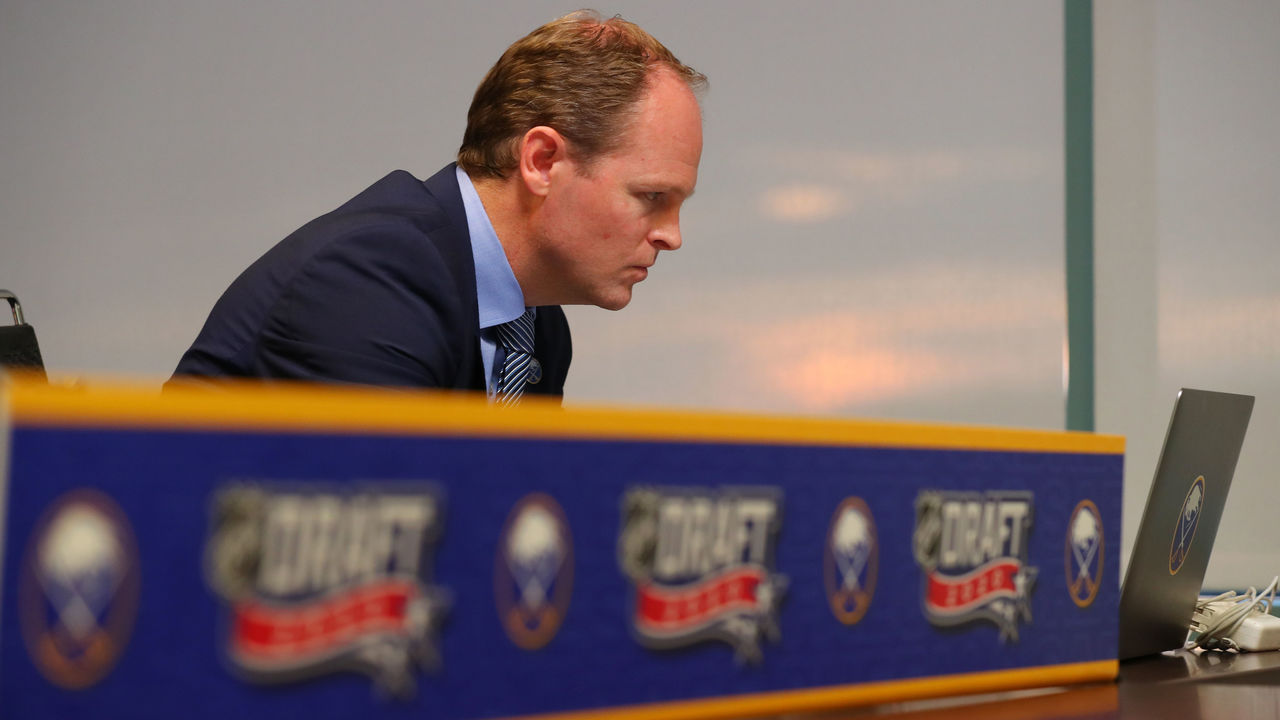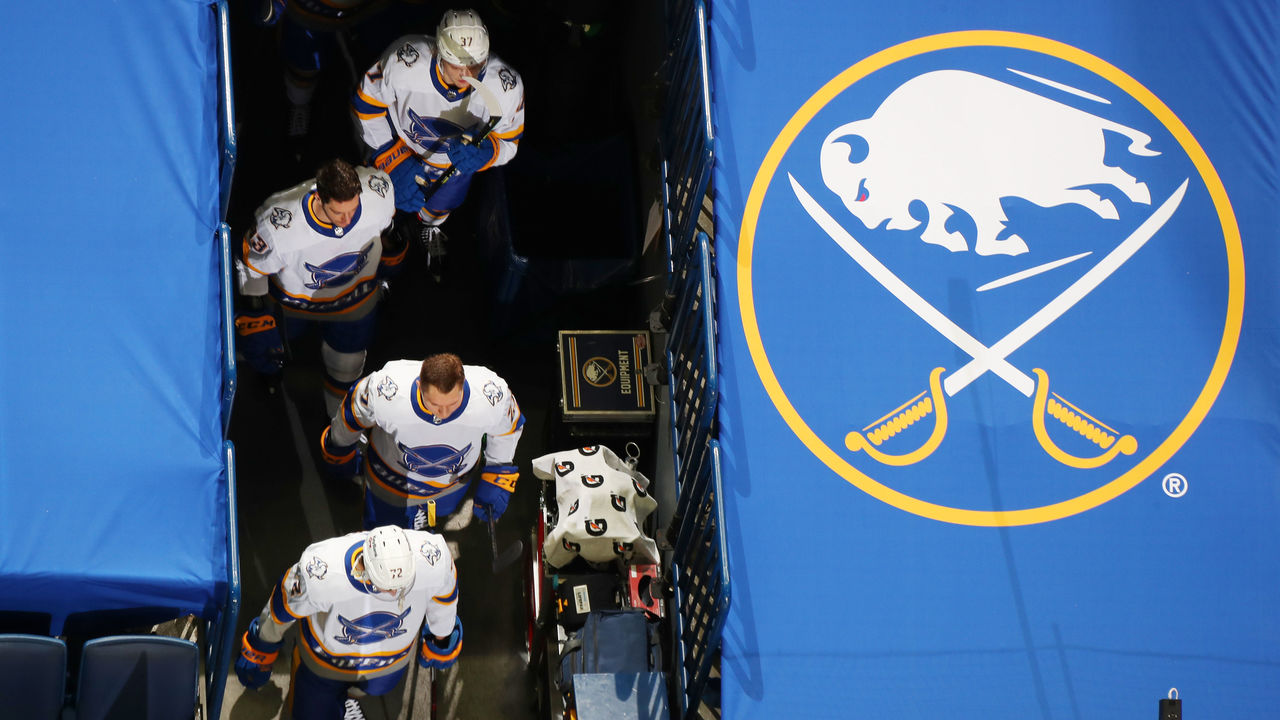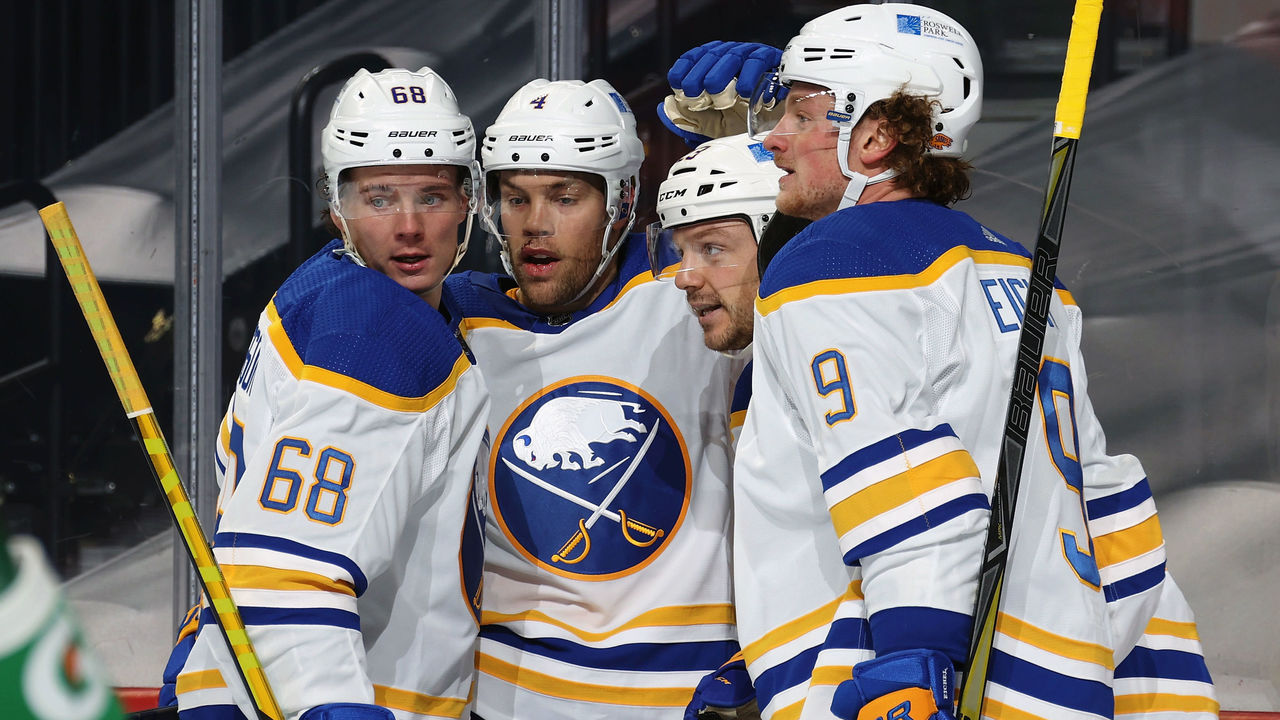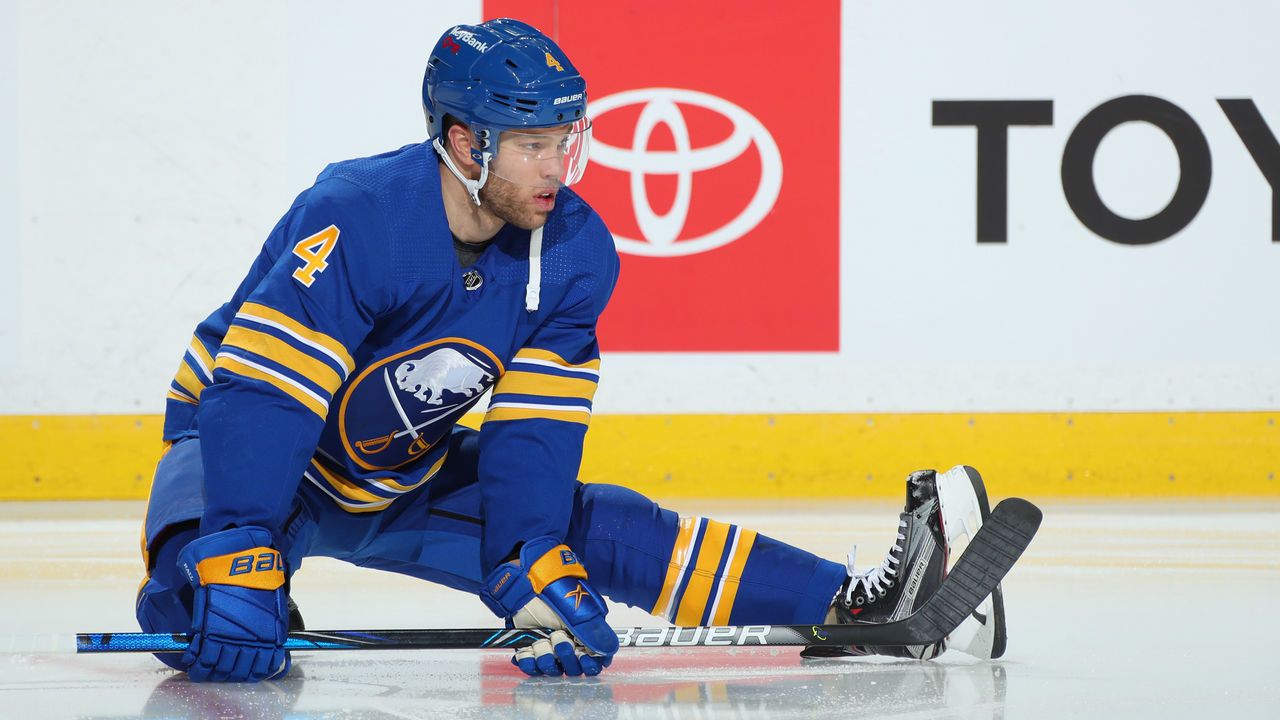There's an old cliche in pro sports about how there are only two ways to sell your product: You sell winning, or you sell hope.
The Buffalo Sabres are currently incapable of offering either.
Sabres fans came into this truncated season having suffered through nine consecutive years of missing the playoffs. An NHL record-tying 10th straight miss is inevitable following a 6-18-4 showing through the first half of the schedule.
On Tuesday night, general manager Kevyn Adams fired head coach Ralph Krueger and one of Krueger's assistants, Steve Smith. Assistant Don Granato has been elevated to interim head coach as Adams searches for Krueger's full-time replacement.
The news surprised nobody. The club hasn't won in 12 games and owns a 31st-ranked offense, 29th-ranked defense, and terrible underlying numbers.
"We have to be better in every single area of this organization," Adams said during a press conference Wednesday. "It starts with me. I need to manage better, OK? I need to be better in every way. We need to coach better. We need to scout better. We need to develop players better. We need to practice better.
"I mean, you name it, we need to do it better. Period."

The good news here is that Adams isn't using the Sabres' string of bad luck as an excuse. Buffalo was sidelined for 14 days in February due to COVID-19 protocol and has been battling injuries to key players, namely captain Jack Eichel, former MVP Taylor Hall, and shutdown defenseman Jake McCabe.
The bad news is that the GM is absolutely correct in his assessment. Virtually all areas of the organization need upgrading. It's far from an overnight fix. Frankly, it's such a sad state of affairs that another full-fledged rebuild should be on the table for Adams.
First and foremost, though, owners Terry and Kim Pegula must give Adams - a rookie GM with no previous managerial experience in the NHL - a fair shake. The former NHL player needs more resources, plain and simple. Excluding coaches and player development staff, Adams' hockey operations department consists of a vice president of hockey administration, a director of scouting, a director of analytics (who is also assistant director of scouting), a director of hockey strategy, a head collegiate scout, and seven other scouts. That's it.
Essentially, there are 12 people in director, analytics, or scouting roles, as opposed to the 20-plus employed by most front offices.

Adams said he's in the process of filling an assistant GM role, which will help, but realistically, he probably needs two or three assistants to be on an even playing field with his peers. It shouldn't stop there, either - the Pegulas should also hire a president of hockey ops to oversee Adams and his group.
Longtime GMs Jim Rutherford and Mike Gillis both come to mind as potential hires as president. Normally, choosing from a few unemployed veterans is an ineffective way to pick the ideal executive. Yet the Sabres' dire situation begs for stability from somebody in the Rutherford/Gillis mold. Adams could well be the right person to turn around the Sabres. If he's never given an adequate support system, though, he won't have a fighting chance.
All of this front office talk links back to the losing culture that has infected the club for the past decade. Three years ago, former Sabres forward Ryan O'Reilly said the squad had adopted a mindset of "being OK with losing," and Eichel has expressed his frustration more than once. Based on this season's output, particularly the past few weeks, the losing vibe appears to be alive and well.

Adams plans to address the players Thursday. He says his message will revolve around how pride must be "within the DNA of our team." "Stacking wins" throughout the organization will eventually lead to a meaningful culture shift, Adams asserted on his call with the media. "If we all stack wins in the things that we do every day, they start to add up," he said.
This slow-growth mentality sounds smart, but wouldn't it be better to start over? The Sabres aren't just bad; they're rotten to the core. And the vast majority of possible changes won't move the needle.
Eichel is not the problem. He is an elite center, a cornerstone piece. But he turns 25 a few weeks into next season. By the time the Sabres turn over a chunk of their roster - the necessity of which is not up for debate at this point - he'll be in his late 20s and inching toward the end of his prime.
As painful as it would be for the fan base to see one of the best players in franchise history leave, and for the team to enter another intense rebuild, it may be the most responsible course of action. (Eichel has a no-move clause in his contract starting in 2022-23, according to Cap Friendly.)
The case against trading Eichel, of course, is that Buffalo would need to find another Eichel in order to one day contend for a Stanley Cup. But considering he could fetch a hefty package right now and the Atlantic Division projects to be tough for the foreseeable future, the timing could be worse.

Buffalo faces a similar dilemma with Eichel sidekick Sam Reinhart, another valuable piece. Reinhart's an underrated producer, but is the 25-year-old pending restricted free agent part of the solution? Is 20-year-old defenseman Rasmus Dahlin, who's having a down season, part of it too?
Meanwhile, pending UFAs Hall and Eric Staal should garner plenty of outside interest leading to the April 12 trade deadline. Further down the lineup, winger Toby Rieder and blue-liner Brandon Montour - also UFAs - likely won't finish their seasons in Sabres uniforms. Offloading Jeff Skinner's albatross contract would lift a great weight, though it won't be an easy task in a flat-cap world.
"We're open to everything and anything," Adams said.
The Sabres are dealing with an existential crisis. From the NHL roster to player development to the head coach to the front office to the overall culture, there is very little for fans to latch onto - which means nothing should be sacred.
"I do believe every crisis is an opportunity for positive change," Adams said, "and this is a chance for us to move forward and to begin to get this thing pointed in the right direction."
John Matisz is theScore's senior hockey writer. You can follow John on Twitter (@MatiszJohn) and contact him via email (john.matisz@thescore.com).
Copyright © 2021 Score Media Ventures Inc. All rights reserved. Certain content reproduced under license.